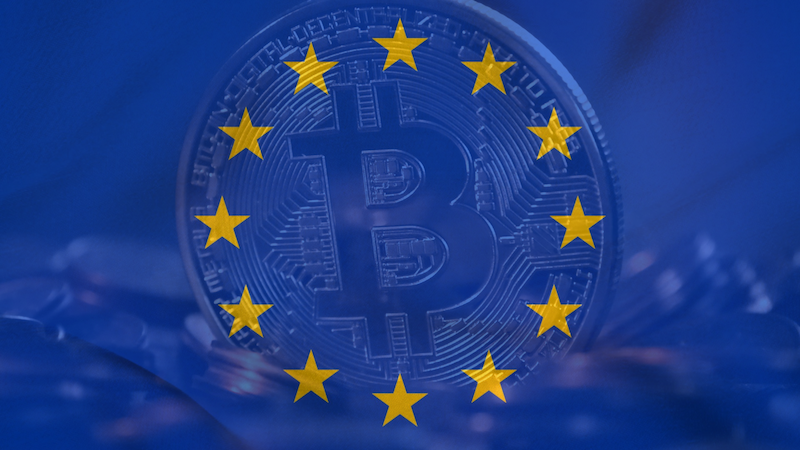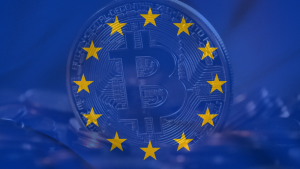Join Our Telegram channel to stay up to date on breaking news coverage
Europe’s got its digital asset game on point, while the U.S. struggles to find its footing in the crypto world. This summer, Europe took a big step forward by introducing its first Bitcoin exchange-traded fund (ETF), the Jacobi FT Wilshire Bitcoin ETF, in Amsterdam. And it didn’t stop there; the European Union set up the Markets in Crypto Assets (MiCA), a comprehensive framework to bring some legal clarity for companies dealing in digital currencies.
Europe's First Spot Bitcoin ETF Now Listed On Euronext Amsterdam
Less than a week after the SEC delayed its decision on a spot Bitcoin ETF approval, Europe launches its first.
By @nikcantmine
Over a year after it's initial planned launch, Jacobi Asset Management has now…
— Bitcoin Magazine (@BitcoinMagazine) August 15, 2023
The U.S., on the other hand, didn’t have the best of summers. Regulators have been dragging their feet on giving the green light to ETF proposals from Wall Street giants like BlackRock and Fidelity. That’s been a real downer for Bitcoin markets. On top of that, there’s been a crackdown on crypto exchanges and Congress is still wrestling with its own regulatory bill.
The numbers back up Europe’s new-found edge. Last year, Europe saw the launch of 3,977 digital asset startups, surpassing the 3,357 in the U.S. And European startups didn’t stop there; they also saw a 14% spike in venture capital investment, while the U.S. experienced a 4% decline.
Lars Christensen, a big shot in Swiss finance, reckons Europe’s gaining ground. “The U.S. still has work to do,” he said in a chat with publication Decrypt. For years, America’s been winning the economic battle, but this summer’s regulatory moves in Europe are making it clear that having straightforward rules can be a game-changer.
This is quite the role reversal, given that Europe used to be notorious for its bureaucratic red tape, while the U.S. had a more relaxed regulatory environment. Case in point: the U.S. has been chasing the elusive Bitcoin spot ETF for about a decade now. Europe? They’ve been offering Bitcoin-related exchange-traded products since 2015.
Christensen also pointed out that the spot ETF controversy in the U.S. doesn’t seem to bother Europe as much. Lowell Ness, a legal expert in the field, explains that the U.S. has a “vague” approach to its securities laws, leading to confusion and power struggles between agencies. He said that:
The problem I think the SEC is missing is that individuals and entities are already starting to realize that they can be based in other places and still be connected to the global financial system with very little difference.
Clarity from SEC Lacking
Speaking of confusion, there’s a lack of formal guidelines or even definitions for digital assets stateside. The frustration has led companies like Coinbase to seek clarity directly from the SEC, only to be met with silence—or worse, a lawsuit.
This regulatory mess is pushing some U.S. companies to think about packing their bags and heading overseas. Just look at Bittrex’s U.S. branch; they decided to shut down last April because they found the U.S. regulatory landscape just too chaotic to navigate. Oliver Linch, the CEO of Bittrex, critiqued the U.S.’s self-absorbed approach to regulation, praising Europe’s custom-tailored approach instead.
That said, industry experts don’t think the U.S. is out for the count. The U.S. still has deeper capital markets and a larger talent pool, factors that could help it catch up. And Congress might actually make some headway with a couple of bills that recently made it past committee stages.
However, Dave Weisberger, a trading platform CEO, argues that the world is waiting for the U.S. to make a move. Despite Europe’s advances, the impact of U.S. players like BlackRock and Fidelity entering the market could be a game-changer for Bitcoin going mainstream.
Lowell Ness warns that the U.S.’s belief that it can take its time to figure things out is short-sighted. Companies are already moving overseas, choosing not to wait for the U.S. to get its act together. He emphasizes that the world won’t wait for the U.S. to decide—it’s ready to move on, with or without them.
Related News
- Billionaire Investor Mark Cuban Argues Crypto Regulation With Former SEC’s Official John Reed Stark
- SEC Chair Gary Gensler ‘Disappointed’ with Ripple Ruling
- SEC Says Binance.US Isn’t Cooperating With Its Investigation, Worries About Assets Being Shifted Overseas
- SEC ‘Crusade’ Against Crypto Industry Must End, Congressman Torres Says
Join Our Telegram channel to stay up to date on breaking news coverage


